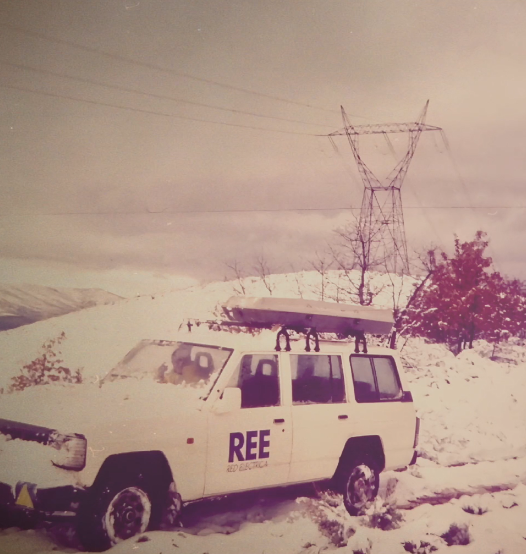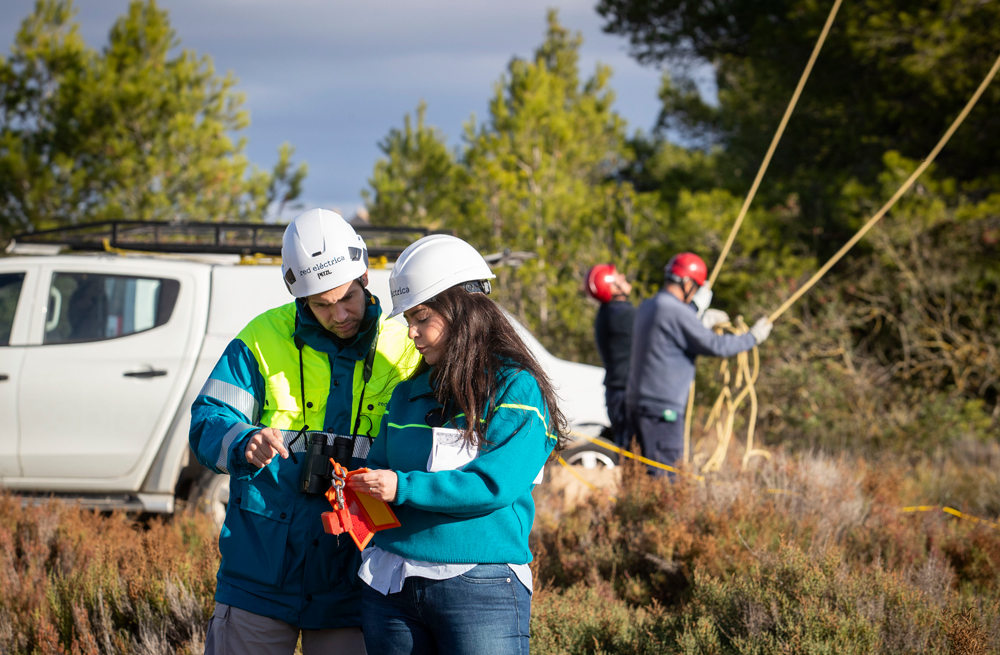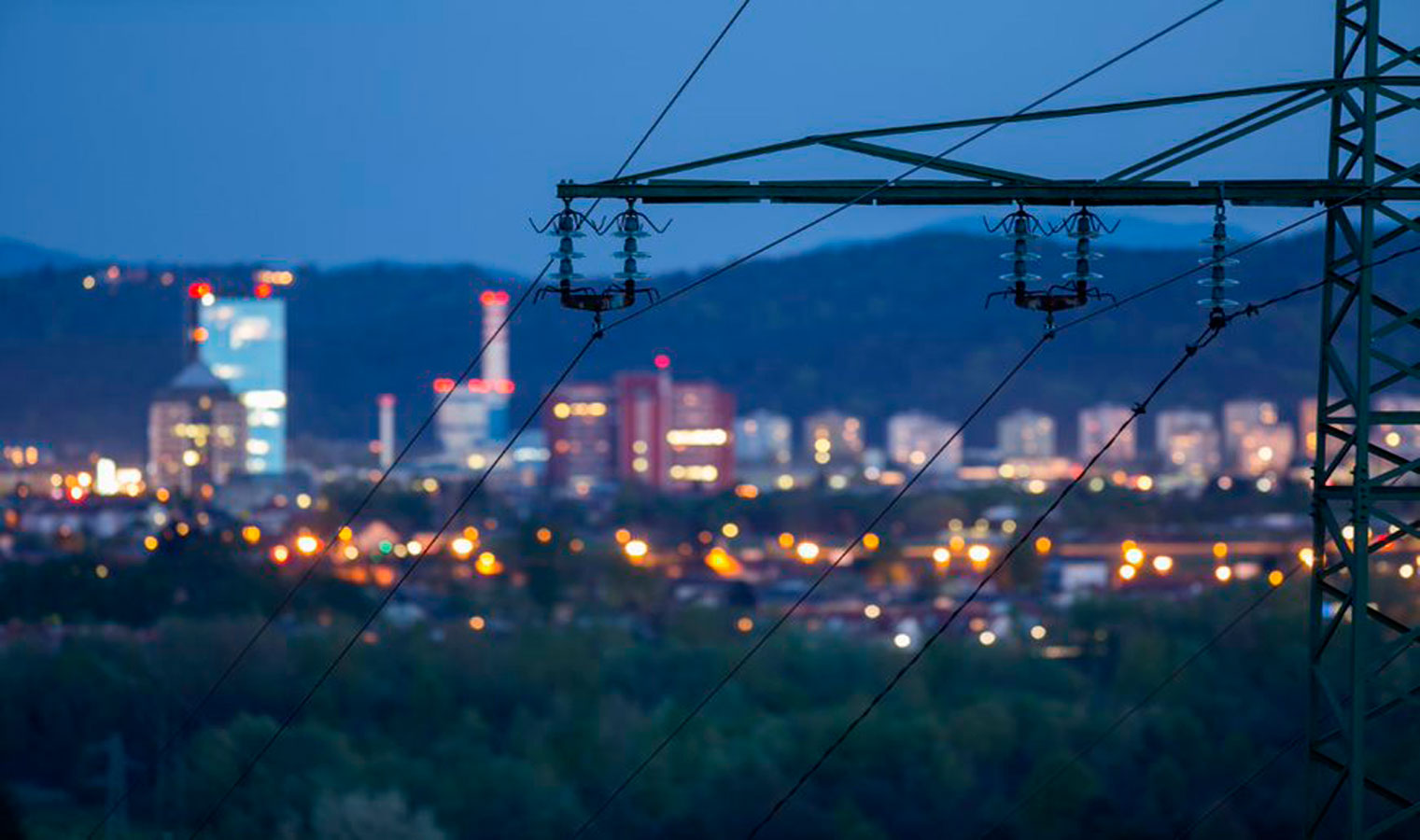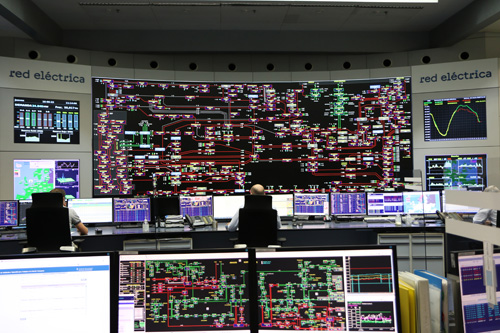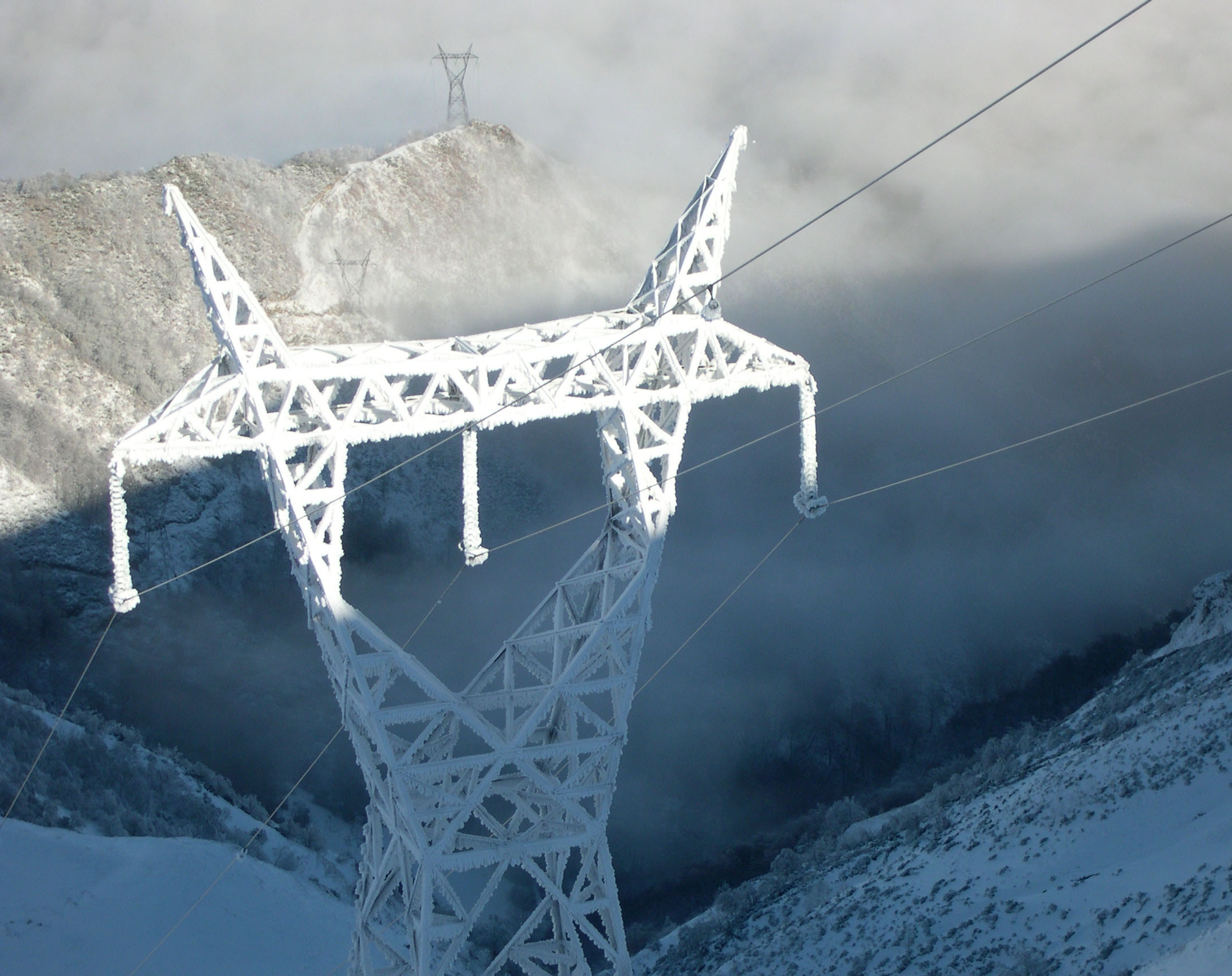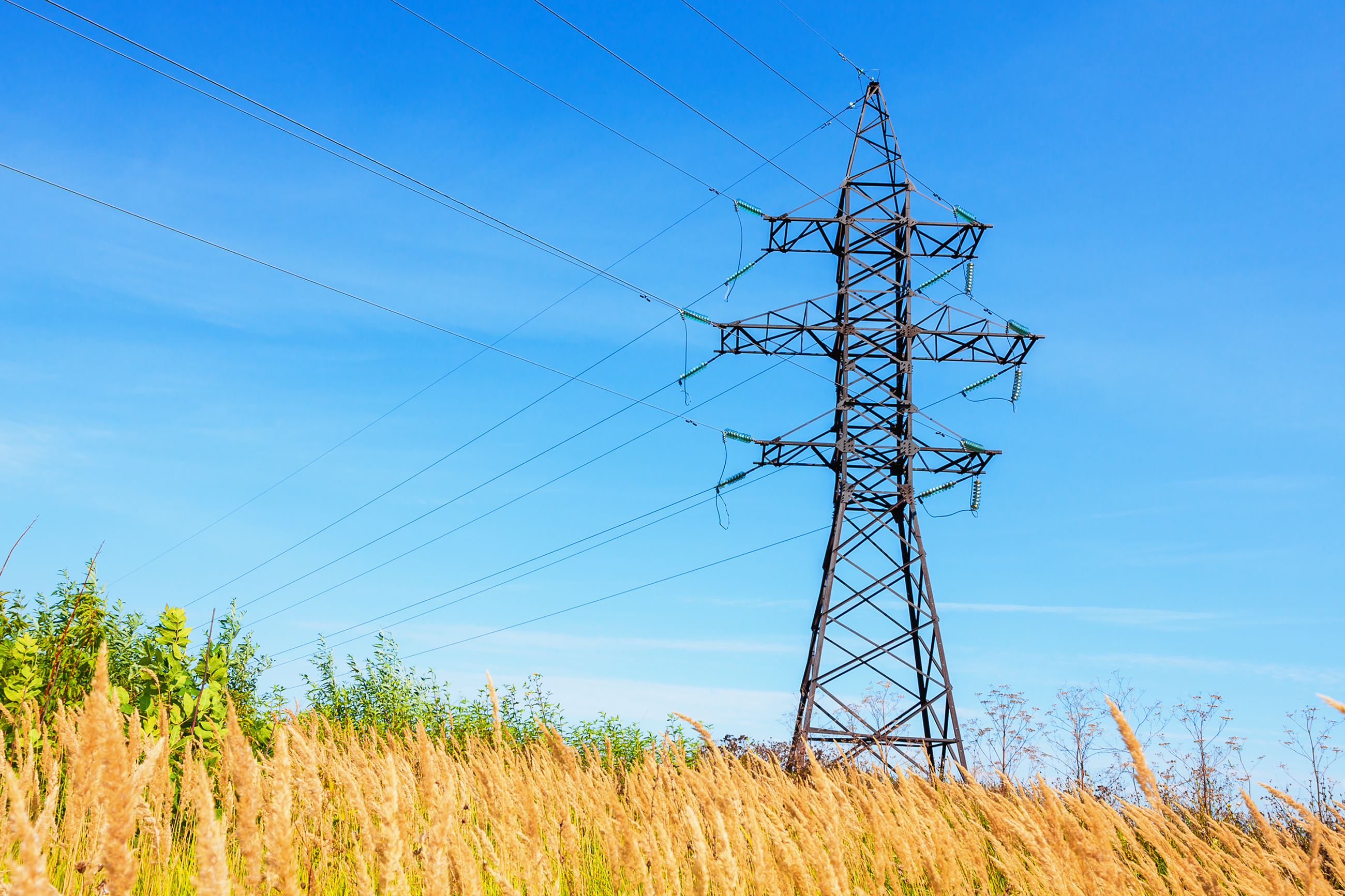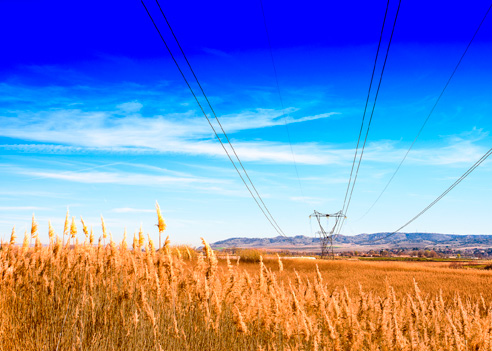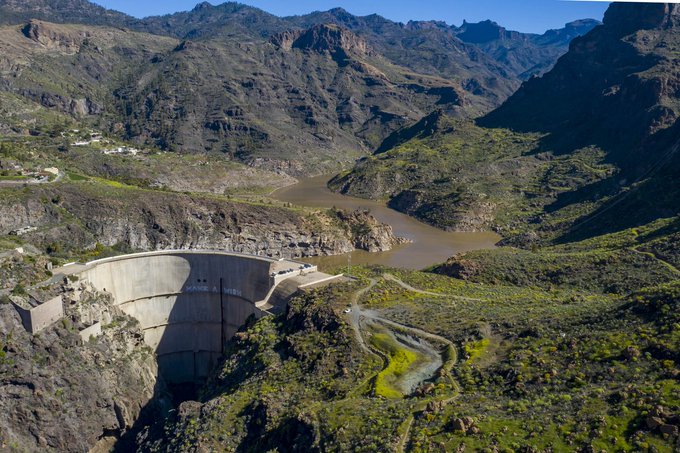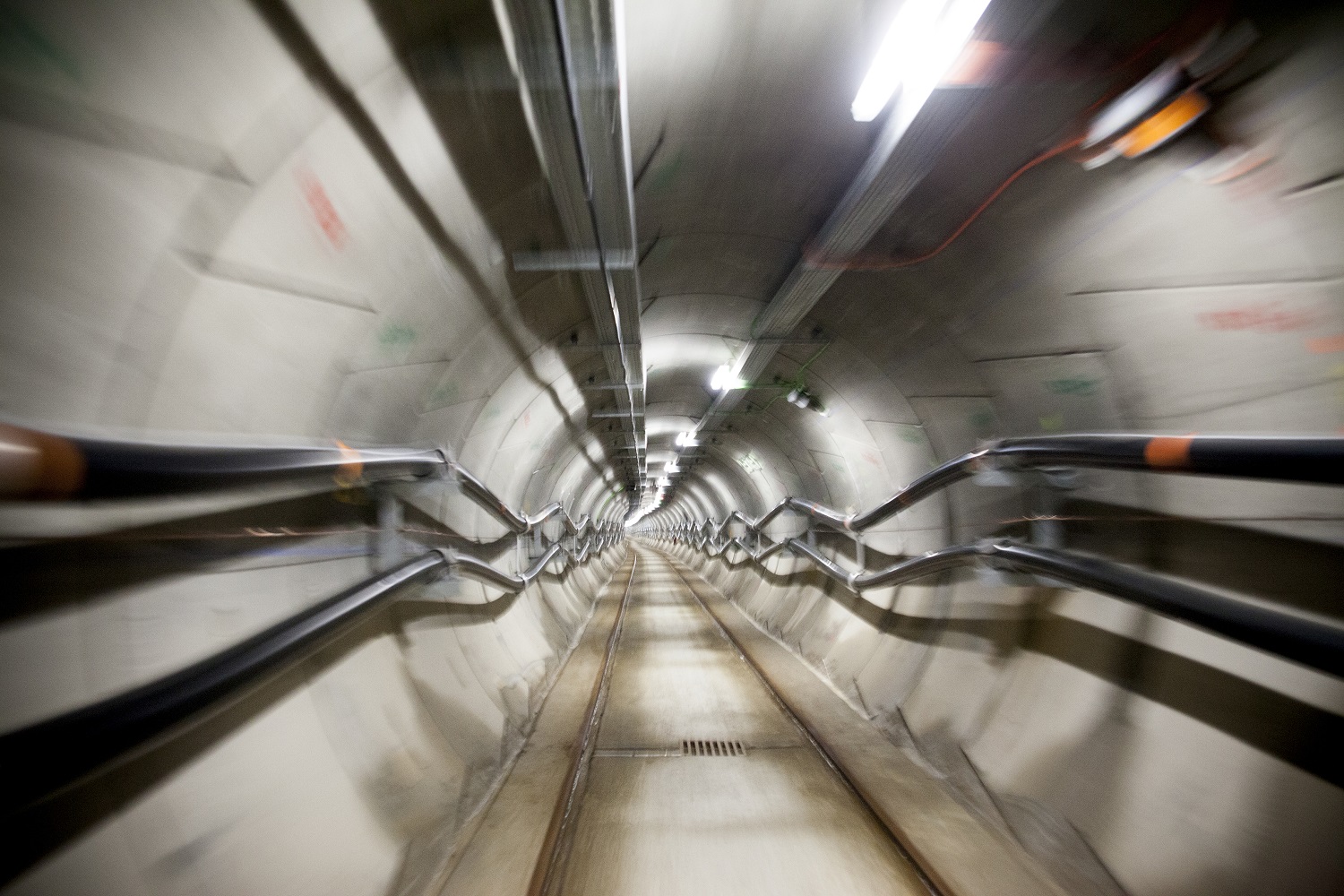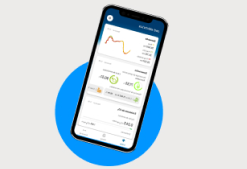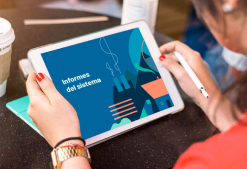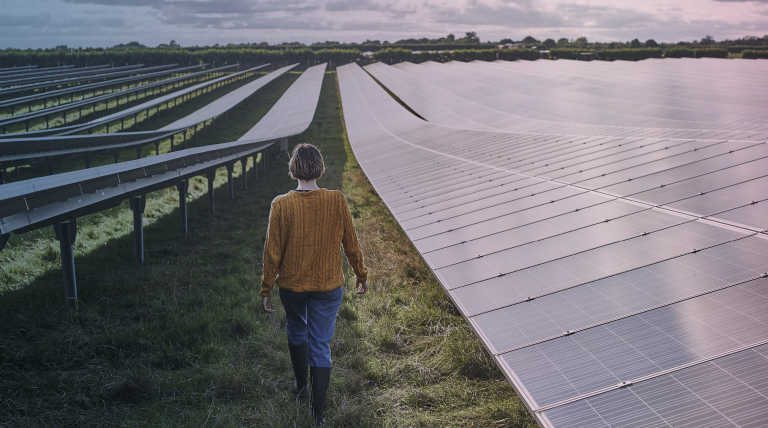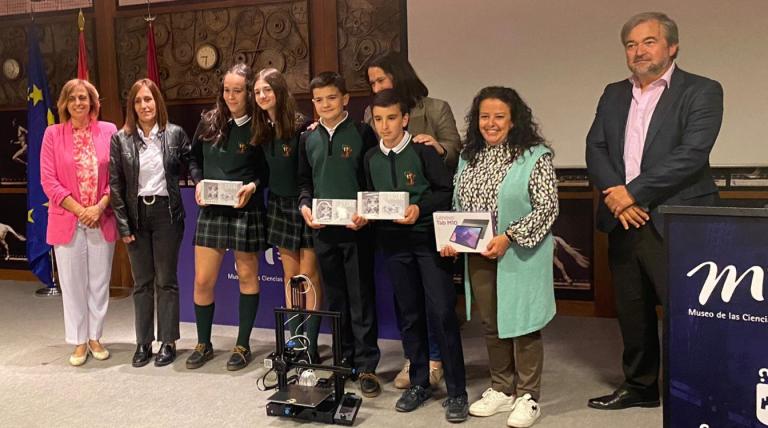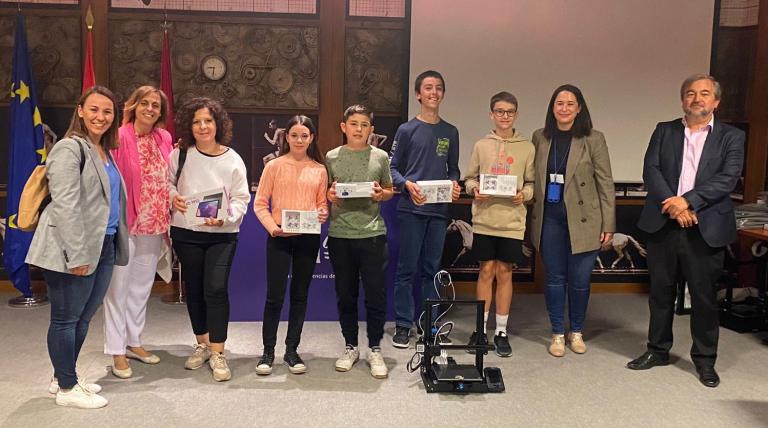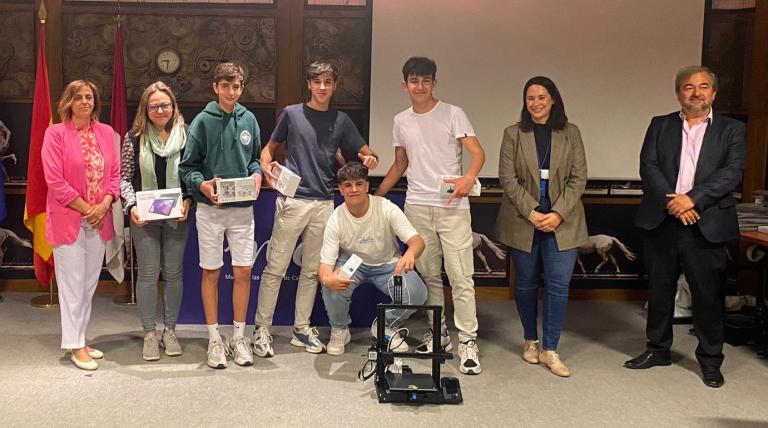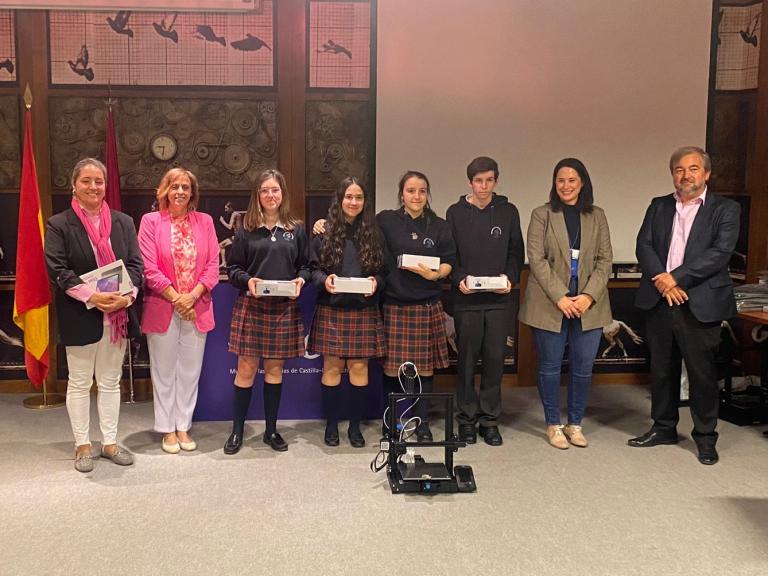For 40 years, we've been driving our country's economic and social progress. Four decades shaping Spain.
Students from Azuqueca de Henares, Manzanares, Albacete, and Talavera de la Reina will represent Castilla-La Mancha in the finals of the entreREDes Olympics
On 15 June, the 16 winners will compete against students from the other autonomous communities to test their knowledge on energy, ecological transition, the Spanish electricity system, history, mathematics, and other subjects consistent with their academic level.
Today, the Giovanni Antonio Farina School in Azuqueca de Henares (Guadalajara) representing the 1st year of ESO (Educación Secundaria Obligatorio - Secondary School); the IES Azures in Manzanares (Ciudad Real), representing the 2nd year; the IES Bachiller Sabuco in Albacete, representing the 3rd year; and the Joaquín Alonso School in Talavera de la Reina (Toledo), representing the 4th year, jointly won the regional final of the entreREDes Olympics and will represent Castilla-La Mancha in the national final, scheduled for 15 June. In this competition, the 16 students from Castilla-La Mancha will compete against students from the rest of the country to demonstrate their mastery of the course material covered throughout the year, in topics such as geography, physics, mathematics, and literature, among others. There will be a focus on what they have learnt about energy, ecological transition, and the Spanish electricity system.
The Castilla-La Mancha Museum of Science hosted the regional final, where 80 students who had previously won in the provincial stages competed for a spot in the national final. The competition involved teams playing a video game called entreREDes, created by Red Eléctrica, the company responsible for the transmission and operation of electricity systems in Spain. The aim of this game is to teach younger generations how the Spanish electricity system works and to review their school knowledge in a fun and interactive way.
The winning schools received a 3D printer for their technology departments from Roberto Arranz, the Redeia delegate (the parent company of Red Eléctrica) in Castilla-La Mancha; Sonia Isidro, the provincial delegate for Education, Culture, and Sports; and Isabel Buleo, the director of the Museum of Science.
This year, the entreREDes Olympics welcomed over 7,000 students from 22 educational centres in Castilla-La Mancha, who used this educational tool in their classes. Nationwide, more than 40,000 ESO students from ten autonomous communities used the game and participated in the Olympics.
A game to help young people understand the energy transmission grid and much more
EntreREDes players virtually travel around the country through different lines and substations of the electricity transmission grid. In order to make progress, they have to answer questions about the electricity industry and the subjects covered in class: geography and history, physics and chemistry/biology, mathematics, language and literature, and leisure and culture.
Among other topics, they learn about renewable energies and their contribution to the mix, interconnections with other countries, the existence of a cable for electricity exchange with the Balearic Islands, and the implications related to the fact that the Canary Islands' electricity systems are isolated.
The game, which is absolutely free, is designed as a tool to support teachers in their classes, as a resource for students to review information at home, and as a fun activity to share with family and friends. It has three different game modes—Classroom, Challenge, and Classic—to suit the educational demands of both teachers and students at all times. Lastly, it is available for both desktops (Windows, MacOS, and Linux) and mobile devices (Android and iOS).
Downloads
